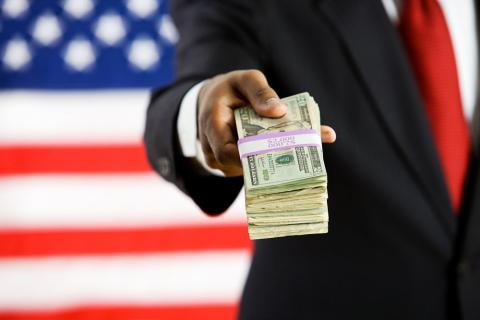It's hard to believe that special election spending in an odd-year would break so many records, but it did.
It was reported ahead of Tuesday that the special election in Georgia's sixth congressional district would be the most expensive House race in history. In fact, it eviscerated that record back in May. What is just as incredible is how much candidates and special interest groups spent per vote: over $200, according to OpenSecrets.org.
https://twitter.com/OpenSecretsDC/status/877615535583875072
Over $200 per vote! And considering how much more the losing side controlled, that is a lot of money spent to lose an election.
https://twitter.com/mjbeckel/status/877324536307359744
Turnout in the Georgia special election was reportedly 58 percent, which is higher than many congressional elections in a midterm year. Republican Karen Handel ended up taking the district with 52 percent over Democratic opponent Jon Ossoff, despite Ossoff reportedly spending 6 times the amount Handel spent in the race.
In the end, it wasn't the money raised or spent that swayed the election; it was the voters in a consistently Republican district. Sure, interest in the race peaked with increased media exposure, which helped drive higher turnout, but with all the talk of money in politics being so powerful in elections, it didn't give the losing side an advantage.
Those who say money in politics is the biggest evil in elections should pause and reflect on this.
If we want to get to the root cause of what is broken about our elections, we need to look at who controls those elections, specially the most crucial stage of the election process: the primaries. We need to look at who controls the drawing of electoral districts. We need to look at who controls the narrative by shutting out competitive voices. We need to look at who controls who gets on the ballot.
The answer to all of these questions in most states is the same: the Republican and Democratic Parties. These two private political corporations have spent decades consolidating their power and blocking out competition at every institutional level of our Republic and our elections.
That is what we should be talking about. What do you think?
Photo Credit: Sean Locke Photography / shutterstock.com
